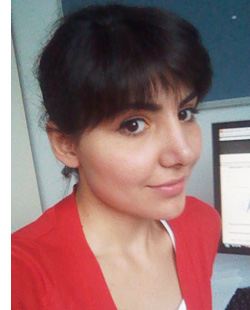
Albert Einstein once said that, “Science is a wonderful thing if one does not have to earn one’s living at it.” This perfectly describes the predicament of working in science in a developing country. As I began my career in Armenia, I was excited and passionate about physics. But when I started my own research, I was forced to confront the catastrophic lack of money for scientific research typical in emerging nations.
A serious obstacle
Early-career scientists sometimes don’t prioritize their salary and instead do research for the love of it. However, even if one doesn’t expect or need to make much money, there are still obstacles to overcome. These include limited access to scientific journals, a lack of modern technologies in laboratories, and the inability to present one’s results at major conferences because of insufficient funds. All of these barriers exclude young and talented researchers from the international scientific community and impede their progress. As a result, these scientists may become uncompetitive or leave the field.
Finding support and solutions
So what is one to do? There are a number of ways to overcome these problems. My solution was to leave my country and continue my work in one of the leading universities in the world, where there was better funding. But I did many other things before I made this decision. I realized that attendance at conferences was a very important prerequisite to becoming a competitive scientist, so I started to look for conference funding.
I recommend that all aspiring researchers join their local OSA and SPIE student chapters. This is an excellent first step that links you with the international scientific community. There are many benefits from membership, from notifications about conferences, to discounts and even travel grants for attendance. Another possibility is obtaining international funds that support early career students, particularly from developing countries. You can also find support at home. There are non-profit groups with funds available and professional organizations at most universities that support talented young students.
The importance of making contacts
My main advice is to talk to people. At conferences you should make an effort to connect with professors and other scholars. This can sometimes seem difficult. You may feel shy because of language barriers, afraid to ask a silly question, or nervous about being rejected by famous or experienced scientists. However, you need to forget these fears in order to be successful. Be prepared, goal-oriented, active and confident. As a result, you may get good advice or even an invitation from a leading group in your field to continue your research, as happened to me.
All of this demands effort: outstanding results in research, the ability to write well to present projects, and excellent communication skills to interact with potential sponsors. If you are seeking a career in science, you have to work hard to develop these personal traits.
The hard truth is that success won’t wait for you and won’t be given to you. You will only find it by having big dreams and working hard and persistently to make them come true, regardless of where you start your career.
Diana Antonosyan (dantonosyan@gmail.com) received her Master’s degree from Yerevan state University in 2008. She was awarded “The Best Female Student Prix of 2010” from the Republic of Armenia President in the IT sphere. She is currently doing her Ph.D. research in nonlinear optics and quantum information technologies at NLPC, RSPE, the Australian National University.
